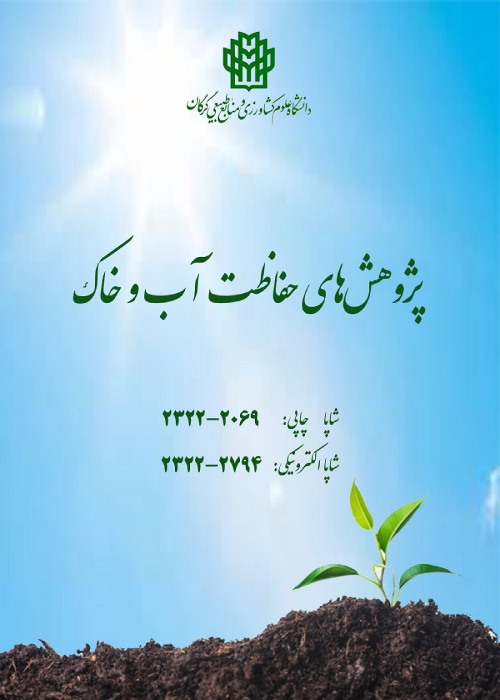Effect of Staphylococcus sp. Bacteria Isolated from Salicornia Plant on Wheat Growth
Salinity is one of the most extensive processes of soil degradation, which limits the increase in the production of food products for more demand. Inoculation of plants with salt tolerant growth promoting bacteria with the ability to produce ACC-deaminase and indole acetic acid often decreases the negative effects of high salt concentration and improves plant growth parameters. Therefore, the aim of this study was to determine the effect of rhizosphere and endophytic salt tolerant bacteria on salinity isolated from rhizosphere and Salicornia roots on wheat growth parameters in different salinity concentrations.
This experiment was conducted in greenhouse conditions in a completely randomized design with four levels of salinity: 0, 44, 77 and 110 mM NaCl and four levels of bacteria: no bacterial treatments (control) rhizosphere, endophytic and combined treatment (rhizosphere and endophytic) were designed and implemented in 3 replications. After harvest, the morphological and physiological characteristics of the wheat were measured. Data analysis was performed using SAS software.
The results showed that plant yield was significantly affected by salinity. Increasing the concentration of NaCl from 0 to 44 mM did not have any effect on all growth parameters, and in some cases, it improved them. But with increasing from 44 to 77 and 110 mM, salinity had a negative effect on all growth parameters and had the highest negative effect in the concentration of 110 mM. . In the absence of salt stress, the presence of bacteria increased plant yield. In salt stress conditions, inoculation of bacterial isolates had a significant effect on plant growth and increased the dry weight of shoot (9.49-26.68%), root length (3.94 -27.47%), dry weight of Root (10-47.36%), dry weight of root ratio dry weight of shoot (19.41-20.69%) and reduction of leaf relative water content (1.2-11.71%), superoxide dismutase (7.63-15.8%) and Proline (12.5-33.33%) than control.
In general, inoculation of bacteria, in 7 of 13 growth parameters resulted in improvement. The reason for not having effect in the other 6 parameters can be attributed to the halotolerant bacterial and the relative resistance of the cultivar used by wheat. According to the results obtained in this study for use of growth promoting bacteria, salt tolerant plant isolated from Salicornia as a bio-fertilizer, to improve growth parameters, reduce the effects of salinity stress and increase the yield of wheat plant requires more studies (using high salinity levels and different wheat cultivars) is at the greenhouse level.
- حق عضویت دریافتی صرف حمایت از نشریات عضو و نگهداری، تکمیل و توسعه مگیران میشود.
- پرداخت حق اشتراک و دانلود مقالات اجازه بازنشر آن در سایر رسانههای چاپی و دیجیتال را به کاربر نمیدهد.



